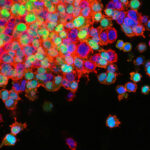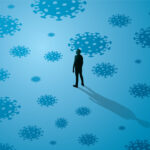Abstracts: Empathy, Eclipse Crowds, and More
• Why is it that humans are capable of both extreme altruism and “unspeakable evil?” National Geographic dives into the science behind altruism, empathy, and psychopathic tendencies in a story published ahead of its expected publication date in light of the violent events that took place in Charlottesville, Virginia last weekend. (National Geographic)

• Though traffic and crowds are expected to overwhelm many of the towns along the upcoming solar eclipse’s path of totality, many psychologists argue that the viewing experience is enhanced by the presence of other strangers. (New York Times)
• A new survey indicates that 56 percent of American doctors at least moderately support a single-payer healthcare system; in contrast, 58 percent of doctors opposed a single-payer system in 2008. The reasons for the shift in opinion are likely related to the simplicity of a single-payer system, a decrease in the number of physicians who own their own practices, and the changing national conversation about universal healthcare in light of the Affordable Care Act. (STAT)
• Because autism runs in families, scientists have been studying the infant siblings of autistic children in order to determine early indicators. But the range of conditions associated with autism has made it more difficult to detect than anticipated. (Spectrum)
• Over 100 children have died since August 7 in a public hospital in northern India. Though the Indian government has denied allegations that a disruption of the hospital’s oxygen supply caused the deaths, many of the victims’ families blame a limited oxygen supply in the facility — which was cut off because the hospital delayed payments to its supplier — and demand answers from the government. (BBC)
• Scientists have identified a protein required to eliminate male reproductive tissues in order for female embryos to develop normally. The study conducted on mice that led to this discovery goes against the longstanding belief that females are the “default” sex of mammals. (Science News)
• Marine algae were key to the development of life 650 million years ago, according to new research. Geochemists studying the issue found traces of biomolecules that increased the quantity of algae in the oceans millions of years ago, which in turn transformed the food web. (BBC)
• And finally, researchers have found a way to weaken or strengthen specific memories in mice, with potential implications for humans dealing with cognitive problems or post-traumatic stress disorder. (The Guardian)









